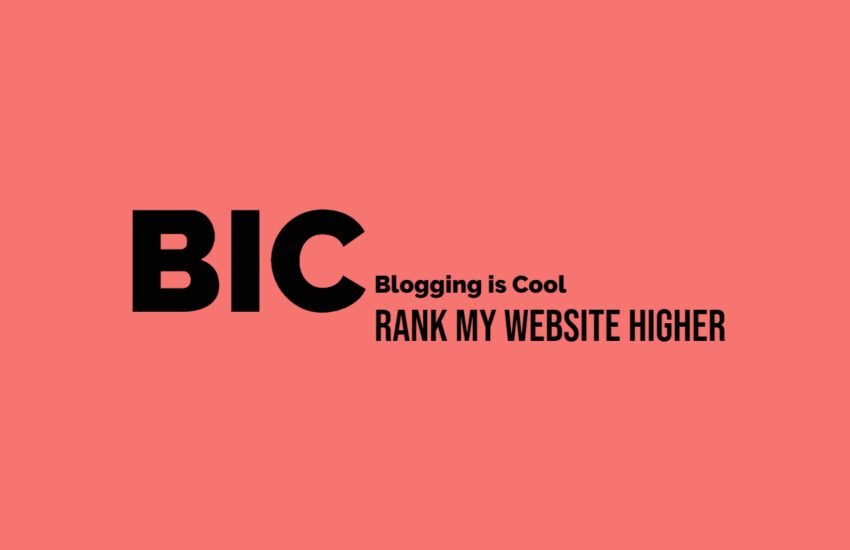10 Monetization Options for Blogs
Blogging has become a viable source of income for many. With advertising networks, affiliate marketing, sponsored content, and more, monetizing your blog has never been easier, offering opportunities to earn revenue from your passion.
- 10 Monetization Options
- Conclusion
- Frequently Asked Questions
- 1. What are the common methods of monetizing a blog?
- 2. How much traffic do I need to monetize my blog effectively?
- 3. What is affiliate marketing, and how does it work for bloggers?
- 4. How do bloggers get paid through display advertisements?
- 5. What is sponsored content, and how can bloggers monetize it?
- 6. Can I sell my own products or services on my blog?
- 7. What are the best practices for monetizing a blog without compromising user experience?
- 8. How do bloggers determine pricing for sponsored content?
- 9. Are there any legal considerations bloggers should be aware of when monetizing their blogs?
- 10. How long does it take to start making money from a blog?
10 Monetization Options
Here are 10 monetization options for blogs
1. Advertising Networks
Advertising networks like Google AdSense, Media.net, or Ezoic allow bloggers to display ads on their websites and earn revenue based on ad impressions or clicks. These networks provide code snippets that bloggers can integrate into their websites, and they handle ad placement, optimization, and payment processing.
2. Affiliate Marketing
Affiliate marketing involves promoting products or services through unique affiliate links. Bloggers earn a commission when their readers click on the links and make a purchase. Affiliate marketing can be highly lucrative when bloggers promote products relevant to their niche and audience, and it’s essential to provide genuine recommendations to maintain trust.
3. Sponsored Content
Sponsored content involves collaborating with brands or companies to create blog posts, videos, or social media posts that promote their products or services. Bloggers typically charge a fee for sponsored content creation and publication. It’s crucial to disclose sponsored content transparently to maintain credibility with the audience.
4. Digital Products
Bloggers can create and sell digital products such as e-books, online courses, printables, templates, or software. Digital products offer scalability and passive income potential since they can be created once and sold repeatedly. Platforms like Gumroad, Teachable, or Podia facilitate the creation and sale of digital products.
5. Physical Products
Bloggers with a dedicated audience can sell physical products related to their niche, such as merchandise, branded apparel, or handmade items. E-commerce platforms like Shopify, WooCommerce, or Etsy enable bloggers to set up online stores and manage inventory, payments, and shipping.
6. Memberships/Subscriptions
Bloggers can offer premium content, exclusive resources, or community access to subscribers through membership or subscription models. Platforms like Patreon, MemberPress, or Substack allow bloggers to monetize their content by offering subscription-based access to premium content or features.
7. Consulting/Coaching Services
Bloggers who have expertise in a particular niche or field can offer consulting or coaching services to individuals or businesses. Services may include one-on-one coaching sessions, group workshops, or personalized strategy sessions. Bloggers can leverage their expertise and authority to attract clients seeking guidance or mentorship.
8. Freelancing
Bloggers can monetize their skills and expertise by offering freelance services such as writing, graphic design, web development, social media management, or SEO optimization. Freelancing allows bloggers to leverage their blogging experience and expand their income streams by offering services to clients or businesses.
9. Events/Webinars/Workshops
Bloggers can organize and monetize events, webinars, or workshops related to their niche. These events can offer valuable content, networking opportunities, or skill-building sessions for attendees, who pay a registration or ticket fee to participate. Platforms like Eventbrite or Zoom facilitate event planning and ticket sales.
10. Donations/Patronage
Bloggers can accept donations or patronage from their audience as a form of monetization. Platforms like PayPal, Buy Me a Coffee, or Patreon allow bloggers to receive voluntary contributions or ongoing support from their fans and followers. This monetization method relies on building a loyal and supportive community willing to contribute financially to sustain the blogger’s work.
Conclusion
Each of these monetization options offers different opportunities and challenges, and successful bloggers often combine multiple strategies to diversify their income streams and maximize revenue potential. It’s essential for bloggers to experiment with different monetization methods, analyze their effectiveness, and adapt their strategies based on audience feedback and market trends.
Frequently Asked Questions
1. What are the common methods of monetizing a blog?
Common methods of monetizing a blog include displaying advertisements (such as Google AdSense), affiliate marketing, sponsored content, selling digital or physical products, offering online courses or memberships, and accepting donations.
2. How much traffic do I need to monetize my blog effectively?
The amount of traffic needed to effectively monetize a blog depends on the monetization method and niche. For example, advertising networks like Google AdSense typically require thousands of monthly pageviews, while affiliate marketing can be profitable with lower traffic if the audience is highly engaged and targeted.
3. What is affiliate marketing, and how does it work for bloggers?
Affiliate marketing is a performance-based marketing strategy where bloggers promote products or services through unique affiliate links. When a reader clicks on the link and makes a purchase, the blogger earns a commission. Successful affiliate marketing involves recommending products relevant to your audience and providing genuine recommendations.
4. How do bloggers get paid through display advertisements?
Bloggers can earn money through display advertisements by partnering with ad networks like Google AdSense or Mediavine. These networks place ads on the blog, and bloggers earn revenue based on factors like ad impressions, clicks, or actions taken by visitors. Payment is typically based on a cost-per-click (CPC) or cost-per-thousand-impressions (CPM) basis.
5. What is sponsored content, and how can bloggers monetize it?
Sponsored content involves partnering with brands or companies to create blog posts, videos, or social media posts that promote their products or services. Bloggers can monetize sponsored content by charging a fee for creating and publishing the content. It’s essential to disclose sponsored content transparently to maintain trust with your audience.
6. Can I sell my own products or services on my blog?
Yes, bloggers can sell their own products or services on their blogs. This could include digital products like e-books, courses, or printables, as well as physical products like merchandise or handmade items. Bloggers can use platforms like Shopify, WooCommerce, or Etsy to set up e-commerce functionality on their blogs.
7. What are the best practices for monetizing a blog without compromising user experience?
– Some best practices for monetizing a blog without compromising user experience include:
– Choosing relevant advertisements and affiliate products.
– Limiting the number of ads to avoid overwhelming visitors.
– Clearly labeling sponsored content to maintain transparency.
– Balancing promotional content with valuable, non-promotional content.
– Prioritizing the user experience to keep visitors engaged and returning to the blog.
8. How do bloggers determine pricing for sponsored content?
Bloggers can determine pricing for sponsored content based on factors like their audience size, engagement rates, niche, the scope of work, and the brand’s budget. Pricing models may include flat fees, cost-per-post, or cost-per-engagement. It’s essential to consider the value provided to the brand and negotiate fair compensation accordingly.
9. Are there any legal considerations bloggers should be aware of when monetizing their blogs?
– Yes, bloggers should be aware of legal considerations such as:
– Disclosing sponsored content and affiliate relationships to comply with FTC guidelines.
– Ensuring compliance with copyright and intellectual property laws when using images or content created by others.
– Creating clear terms and conditions for selling products or services to protect both the blogger and customers.
10. How long does it take to start making money from a blog?
The time it takes to start making money from a blog varies depending on factors like niche, content quality, marketing efforts, and monetization methods. Some bloggers may start earning income within a few months, while others may take longer to build a profitable audience and monetization strategy. Consistency, patience, and dedication are key to success in monetizing a blog.
Related Posts

